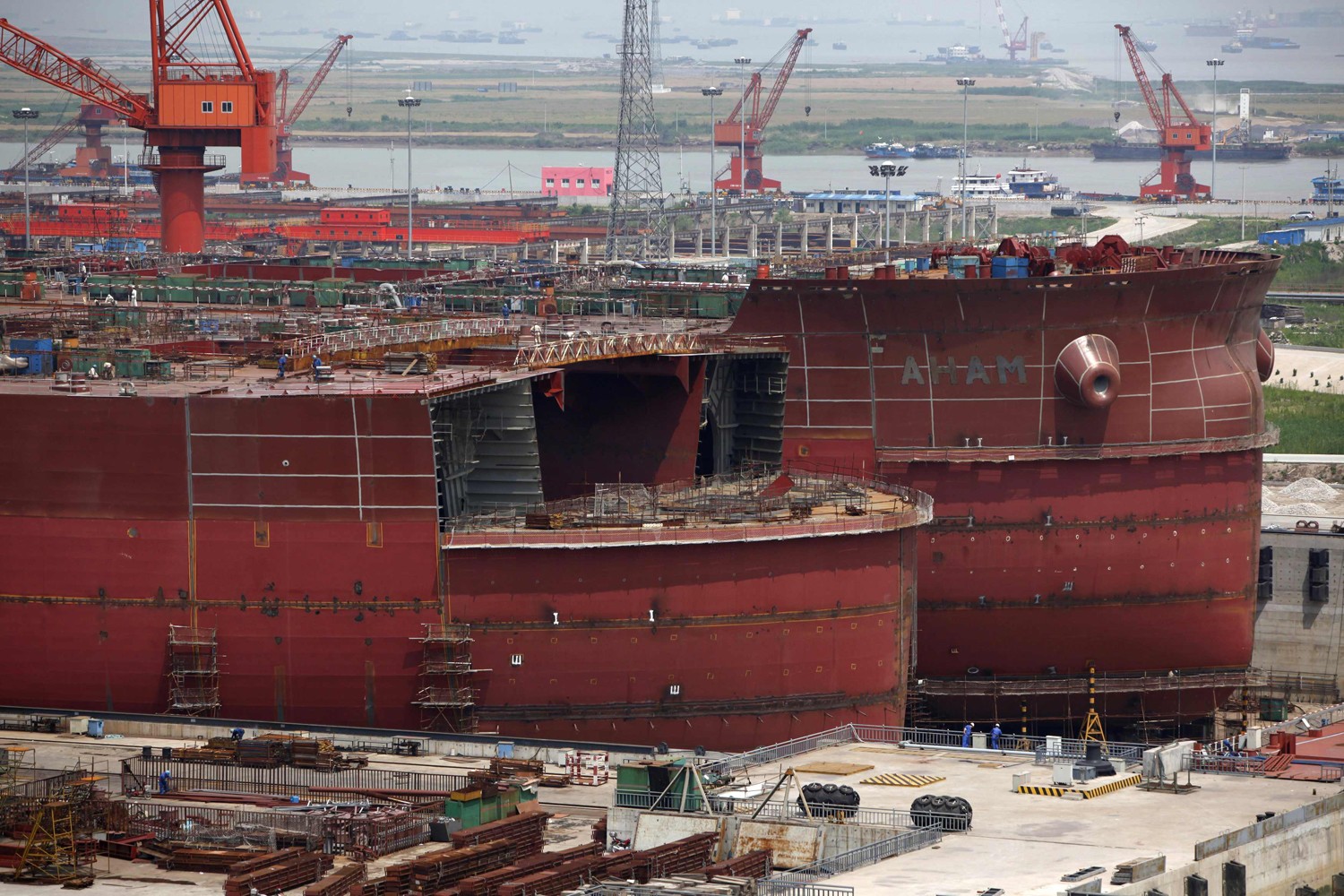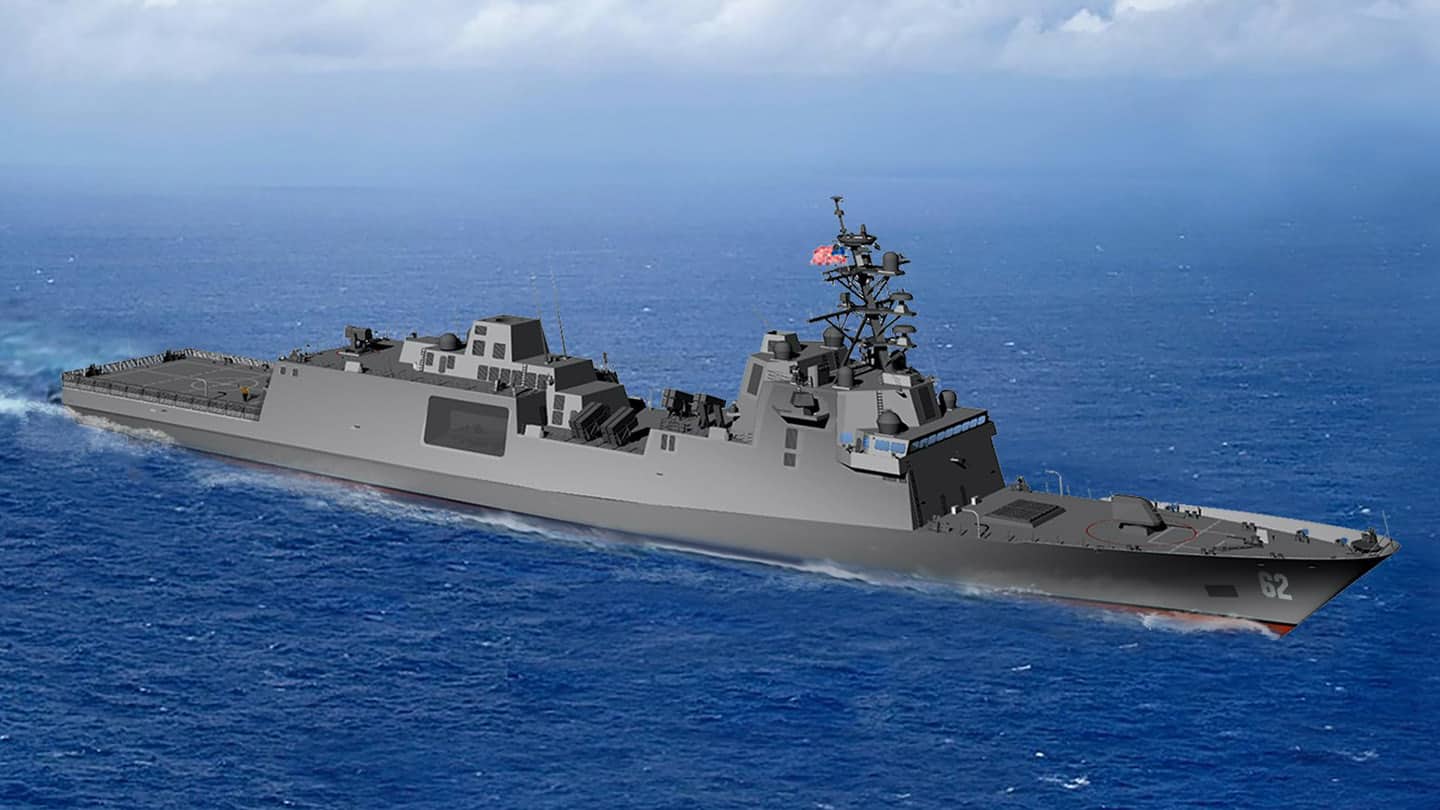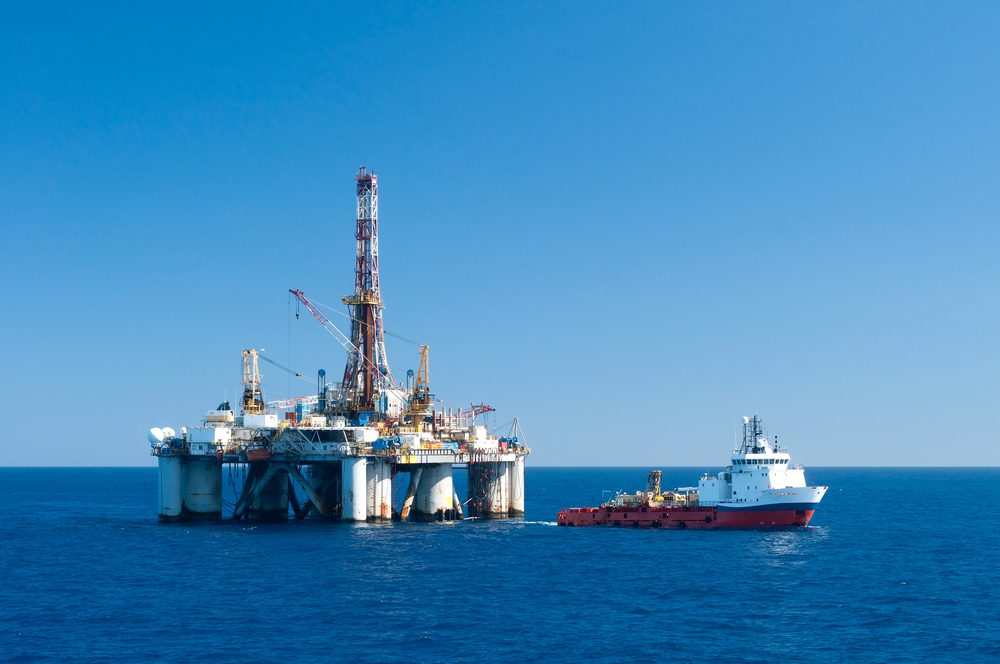Rongsheng Heavy Industries shipyard in Nantong, Jiangsu, file photo (c) REUTERS/Aly Song/Files
Aug. 5 (Bloomberg) — China issued a three-year plan to urge financial institutions to support its troubled shipbuilding industry, the world’s biggest, one month after the nation’s largest private yard sought government financial support.
Ship owners placing orders for China-made vessels, engines and some main parts should get better funding and some key companies will be allowed to issue corporate bonds, the State Council said in a statement released yesterday. Chinese shipbuilders don’t have strong innovation, while overcapacity persists, the statement dated July 31 said.
China may have a third of its more than 1,600 yards shut down in about five years, according to Wang Jinlian, head of the industry association. The sector is among those including iron and steel, cement, electrolytic aluminum and flat glass that must accelerate the phasing out of overcapacity, according to the Ministry of Industry and Information Technology.
“It seems as if the government wants to soothe the sector by issuing the support plan as it can’t afford to see social unrest caused by large-scale bankruptcies or job cuts,” said Lawrence Li, a Shanghai-based analyst at UOB-Kay Hian Holdings Ltd. “However, the government didn’t explicitly say how it would help the shipbuilders and what kind of yards are key.”
Control Capacity
China Rongsheng Heavy Industries Group Holdings Ltd., the largest shipbuilder outside state control by order book, reported last month it had a net loss in the first half and said it was seeking financial support from the government and shareholders after a plunge in orders strained cash flow. The company has also agreed to issue convertible bonds to raise a net HK$1.38 billion ($178 million) for working capital and to support the development of its offshore engineering business.
Shares of Rongsheng jumped 5.2 percent to HK$1.01, the highest level in a month, at close of trading in Hong Kong today. The stock has dropped 19 percent this year, compared with a 1.9 percent decline for the benchmark Hang Seng Index.
The State Council’s policy to support shipbuilding industry will be positive for Rongsheng, Zhang Zhirong, the shipbuilder’s co-founder and largest shareholder, said in an e-mailed statement today. The company declined to comment whether it received any financial support from the government, according to a separate e-mailed statement.
The State Council plan also urged local governments to support shipbuilders’ innovation, strictly control new capacity, promote high-end products and stabilize the industry’s international market share with greater funding support, according to the statement.
Mergers and Acquisitions
Companies should be confident as “the potential in the domestic market remains relatively large,” according to the statement. Besides restricting new shipbuilding capacity, the government is encouraging mergers and acquisitions and pooling of resources in the industry, the statement said.
CSSC Jiangnan Heavy Industry Co., a unit of China State Shipbuilding Corp. jumped by the daily limit of 10 percent in Shanghai trading today. Guangzhou Shipyard International Co. gained 7.6 percent in the city.
Thirty-eight percent of yards in China didn’t get contracts for new vessels last year, and 10 percent had no deliveries scheduled beyond the end of that year, the London-based ship- broking unit of ICAP Plc said in a report sent by e-mail on Dec. 24.
The government also pledged to study securitization of shipbuilders’ loans, according to the statement.
In the plan, the Chinese authorities said it will encourage the development of offshore engineering equipment such as drilling platforms and large LNG ships.
Older Ships
The global onshore and offshore plant construction market is expected to rise to $1.26 trillion in 2017 from $989 billion in 2012, according to South Korea’s Ministry of Knowledge. The offshore oil and gas market may account for 26 percent of that, the ministry said in a Jan. 7 statement.
Earlier scrapping of older ships than scheduled is another part of the plan, according to the statement, while it urged more military-civilian cooperation in vessel design and development.
Local authorities and agencies should formulate supporting policies and ensure the timely completion of targets, the statement said, without providing any specific goals.
Profits Decline
Under the government’s current five-year economic plan that runs through 2015, targets for the sector include upgrading shipbuilding standards and developing higher value-added products.
The combined profits of 80 major shipbuilders monitored by the Chinese Association of the National Shipbuilding Industry fell 54 percent in the first half of the year to 3.58 billion yuan ($584 million), the China Daily reported on July 24.
About 464 shipyards in China won 18.7 million dead-weight tons of orders worth $14.3 billion last year, the lowest since 2004, according to Clarkson Plc, the world’s biggest shipbroker. That compares with contracts for 14.6 million tons worth $29.6 billion received by 88 yards in South Korea, the world’s second- biggest shipbuilding nation.
Copyright 2013 Bloomberg.
Unlock Exclusive Insights Today!
Join the gCaptain Club for curated content, insider opinions, and vibrant community discussions.

 Join The Club
Join The Club













